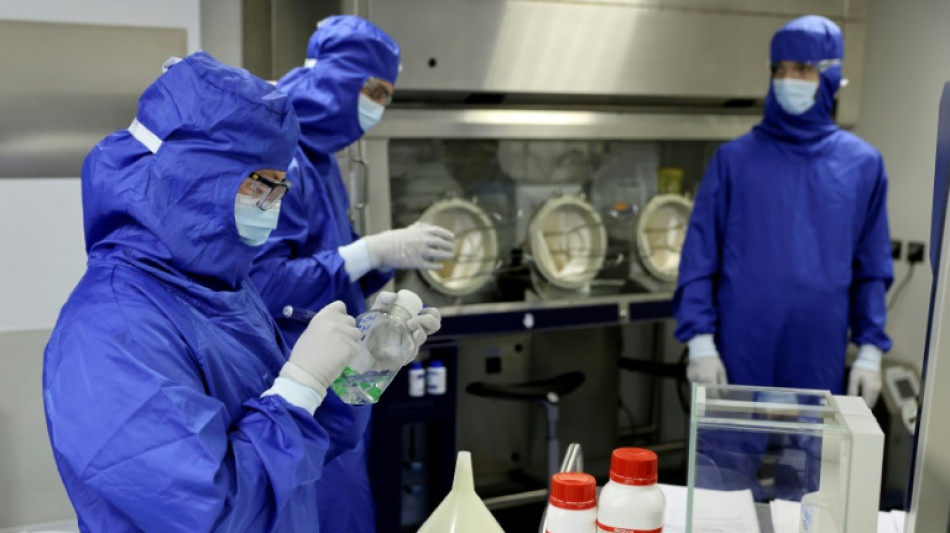
-
 Salah unaffected by Liverpool turmoil ahead of AFCON opener - Egypt coach
Salah unaffected by Liverpool turmoil ahead of AFCON opener - Egypt coach
-
Goggia eases her pain with World Cup super-G win as Vonn takes third

-
 Goggia wins World Cup super-G as Vonn takes third
Goggia wins World Cup super-G as Vonn takes third
-
Cambodia says Thai border clashes displace over half a million

-
 Kremlin denies three-way US-Ukraine-Russia talks in preparation
Kremlin denies three-way US-Ukraine-Russia talks in preparation
-
Williamson says 'series by series' call on New Zealand Test future

-
 Taiwan police rule out 'terrorism' in metro stabbing
Taiwan police rule out 'terrorism' in metro stabbing
-
Australia falls silent, lights candles for Bondi Beach shooting victims

-
 DR Congo's amputees bear scars of years of conflict
DR Congo's amputees bear scars of years of conflict
-
Venison butts beef off menus at UK venues

-
 Cummins, Lyon doubts for Melbourne after 'hugely satsfying' Ashes
Cummins, Lyon doubts for Melbourne after 'hugely satsfying' Ashes
-
'It sucks': Stokes vows England will bounce back after losing Ashes

-
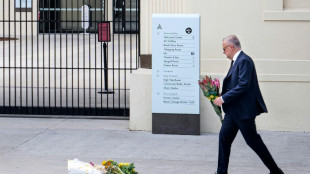 Australia probes security services after Bondi Beach attack
Australia probes security services after Bondi Beach attack
-
West Indies need 462 to win after Conway's historic century

-
 Thai border clashes displace over half a million in Cambodia
Thai border clashes displace over half a million in Cambodia
-
Australia beat England by 82 runs to win third Test and retain Ashes

-
 China's rare earths El Dorado gives strategic edge
China's rare earths El Dorado gives strategic edge
-
Japan footballer 'King Kazu' to play on at the age of 58
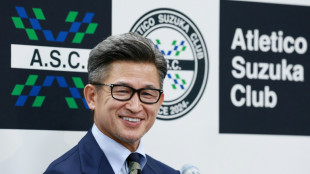
-
 New Zealand's Conway joins elite club with century, double ton in same Test
New Zealand's Conway joins elite club with century, double ton in same Test
-
Australian PM orders police, intelligence review after Bondi attack
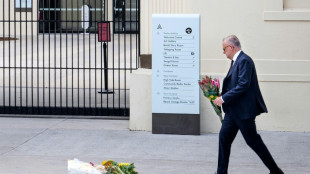
-
 Durant shines as Rockets avenge Nuggets loss
Durant shines as Rockets avenge Nuggets loss
-
Pressure on Morocco to deliver as Africa Cup of Nations kicks off
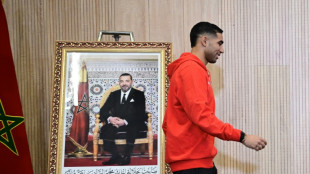
-
 Australia remove Smith as England still need 126 to keep Ashes alive
Australia remove Smith as England still need 126 to keep Ashes alive
-
Myanmar mystics divine future after ill-augured election

-
 From the Andes to Darfur: Colombians lured to Sudan's killing fields
From the Andes to Darfur: Colombians lured to Sudan's killing fields
-
Eagles win division as Commanders clash descends into brawl

-
 US again seizes oil tanker off coast of Venezuela
US again seizes oil tanker off coast of Venezuela
-
New Zealand 35-0, lead by 190, after racing through West Indies tail

-
 West Indies 420 all out to trail New Zealand by 155
West Indies 420 all out to trail New Zealand by 155
-
Arteta tells leaders Arsenal to 'learn' while winning

-
 Honour to match idol Ronaldo's Real Madrid calendar year goal record: Mbappe
Honour to match idol Ronaldo's Real Madrid calendar year goal record: Mbappe
-
Dupont helps Toulouse bounce back in Top 14 after turbulent week

-
 Mbappe matches Ronaldo record as Real Madrid beat Sevilla
Mbappe matches Ronaldo record as Real Madrid beat Sevilla
-
Gyokeres ends drought to gift Arsenal top spot for Christmas

-
 Arsenal stay top despite Man City win, Liverpool beat nine-man Spurs
Arsenal stay top despite Man City win, Liverpool beat nine-man Spurs
-
US intercepts oil tanker off coast of Venezuela

-
 PSG cruise past fifth-tier Fontenay in French Cup
PSG cruise past fifth-tier Fontenay in French Cup
-
Isak injury leaves Slot counting cost of Liverpool win at Spurs

-
 Juve beat Roma to close in on Serie A leaders Inter
Juve beat Roma to close in on Serie A leaders Inter
-
US intercepts oil tanker off coast of Venezuela: US media

-
 Haaland sends Man City top, Liverpool beat nine-man Spurs
Haaland sends Man City top, Liverpool beat nine-man Spurs
-
Epstein victims, lawmakers criticize partial release and redactions
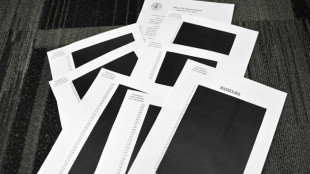
-
 Leverkusen beat Leipzig to move third in Bundesliga
Leverkusen beat Leipzig to move third in Bundesliga
-
Lakers guard Smart fined $35,000 for swearing at refs

-
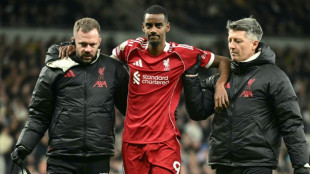 Liverpool sink nine-man Spurs but Isak limps off after rare goal
Liverpool sink nine-man Spurs but Isak limps off after rare goal
-
Guardiola urges Man City to 'improve' after dispatching West Ham

-
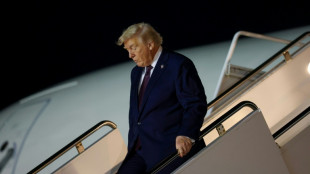 Syria monitor says US strikes killed at least five IS members
Syria monitor says US strikes killed at least five IS members
-
Australia stops in silence for Bondi Beach shooting victims

-
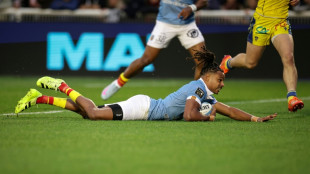 Olympic champion Joseph helps Perpignan to first Top 14 win despite red card
Olympic champion Joseph helps Perpignan to first Top 14 win despite red card
-
Zelensky says US mooted direct Ukraine-Russia talks on ending war


Immunologist wins 'Breakthrough Prize' for innovative cancer treatment
When Michel Sadelain began his decades-long quest to genetically modify immune cells to fight cancer, his peers dismissed his ideas as absurd and even his mother grew concerned for his career.
On Thursday, the French and Canadian scientist was announced as a winner of the prestigious Breakthrough Prize for his pioneering work in CAR T-cell therapy, a new form of treatment that has shown exceptional efficacy against blood cancers.
"Over the years, I can't tell you how many times I've heard this won't work, can't work, even if it works it has no future," the 63-year-old told AFP in an interview.
He was passed up for grants, promotions became uncertain, and graduate students steered clear of joining his lab.
"One thing I have to do is to throw a big party with all those who contributed," Sadelain said, laughing. He will split $3 million with American immunologist Carl June, who also led groundbreaking research into the field independently of his co-winner.
The Breakthrough Prize awards "the world's most brilliant minds" in fields including life sciences, fundamental physics and mathematics, styling itself as the Silicon Valley-backed answer to the Nobels. Founding sponsors include Sergey Brin, Priscilla Chan and Mark Zuckerberg.
- Living drugs -
Sadelain studied medicine in Paris, then immunology in Canada, before taking up postdoctoral research at the Massachusetts Institute of Technology in 1989.
At the time, there was great interest in developing vaccines to train the immune system to recognize and destroy cancer cells, in the same way it can be taught to tackle foreign invaders such as bacteria and viruses.
"But I started thinking that perhaps we should learn how to directly instruct the fighters of the immune system, in particular the T-cells," he said, with his early work focused on mice.
After moving to the Memorial Sloan Kettering Cancer Center in New York, Sadelain developed a way to use a disabled virus to genetically reprogram human T-cells, so that they grew claw-like structures called antigen receptors, allowing the T-cells to target specific cancer cells.
Beyond recognizing the cancer, these Chimeric Antigen Receptor (CAR) T-cells, as Sadelain named them, were also given genetic instructions to enter a killing mode and to multiply, growing an army inside the body to eliminate the enemy.
Thanks to the groundwork laid by June and Sadelain, there are now half a dozen US approved CAR-T cell therapies, with hundreds more trials underway.
Patients' own T-cells are collected, modified outside the body, then infused back into the blood, creating a so-called "living drug."
In a trial against multiple myeloma, a cancer that develops in plasma cells, 72 percent of patients responded to treatment, with total disappearance of the disease seen in 28 percent, among whom 65 percent had sustained eradication for 12 months.
- High costs -
The treatment comes with serious side effects -- including in some cases death -- from the release of inflammatory molecules called cytokines. Doctors have learned to recognize and manage this better over time.
Another risk is nervous system impairment, with symptoms such as deep confusion or inability to talk, although these clear up within days.
Sadelain is excited for what the future could hold: from improving the T-cells so they tackle solid cancers, to treating autoimmune conditions such as lupus, to fighting currently intractable infections such as HIV.
One area he acknowledges must improve is the sky high cost, with price tags upwards of $500,000. In the United States, private and government-subsidized insurers pick up most of the tab for those who qualify, as do health systems in Europe.
"Researchers were aghast when we saw what was charged for these very first therapies," he said. "The cost has to come down," he added, something he expects to happen as the pharmaceutical industry improves its processes, and as scientists continue to innovate.
For example, his own lab is preparing to publish a study showing that improvements to CAR-T cells' efficiency vastly reduces the number needed for treatment.
Other researchers are looking at using stem cells to manufacture CAR-T cells, creating a more economical "off the shelf" solution instead of relying on patients' cells. Clinical testing is underway.
C.Garcia--AMWN



